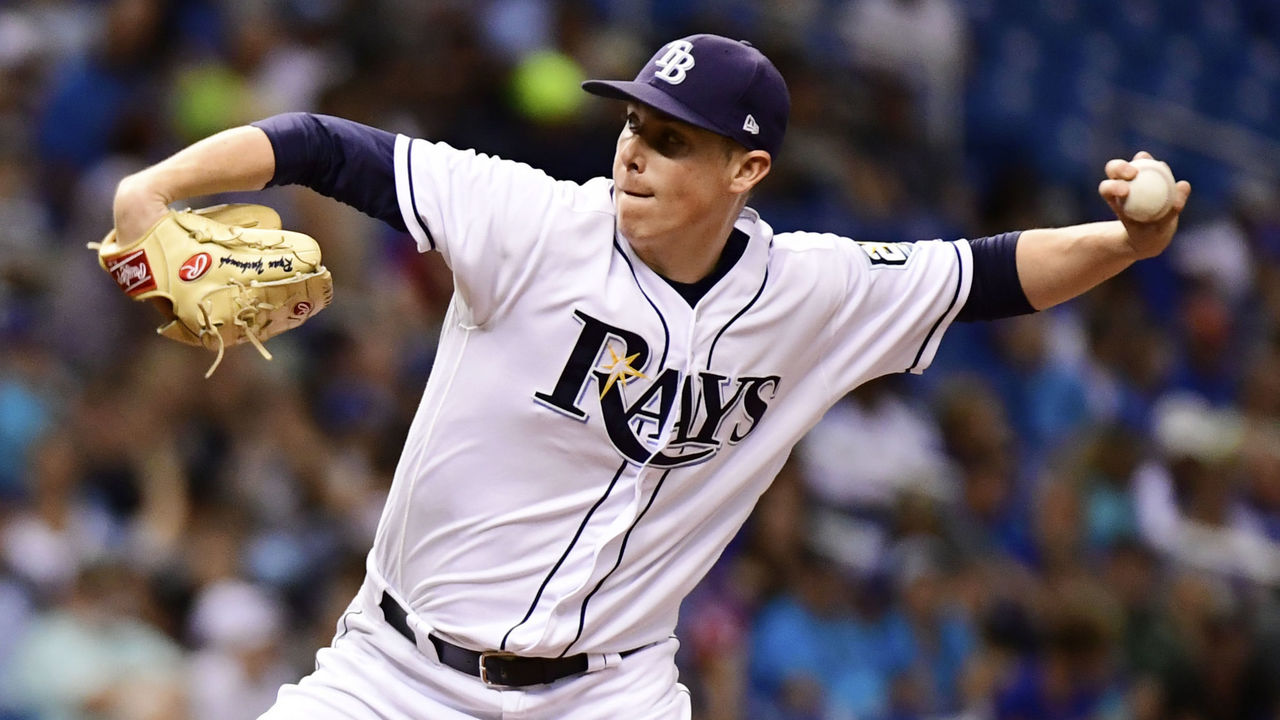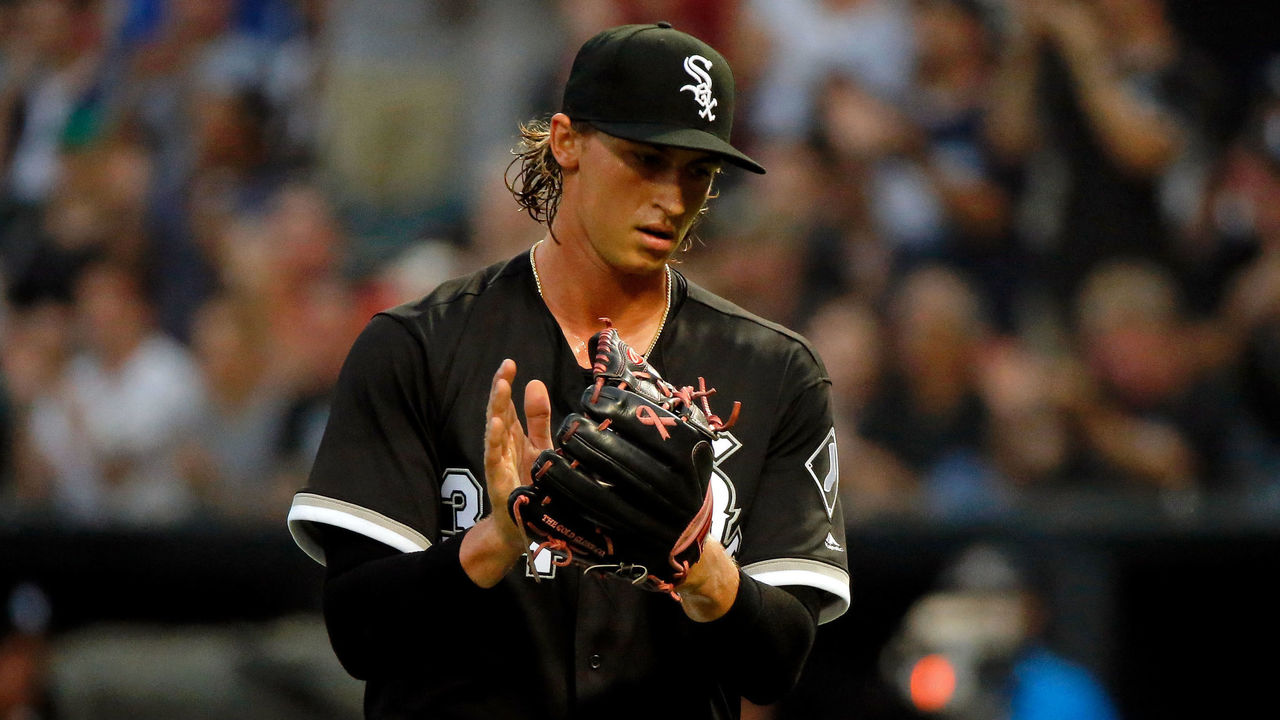Around the Horn: Cleveland needs to change its nickname immediately
Last weekend, the Cleveland Indians took the field against the Toronto Blue Jays at Rogers Centre without Chief Wahoo - their red-faced, big-nosed, stereotype-perpetuating caricature of a Native American - affixed, as he usually is, to their uniform sleeves. Being on the road, moreover, their jerseys bore "Cleveland" on the front instead of "Indians."
Aesthetically, at least, there was nothing overtly racist about this baseball team's uniform. But to call this progress would be charitable.
Frankly, it's hard to shake the feeling that they simply ditched the logo for the weekend to avoid any additional headaches in the wake of the human rights complaint initially filed against them in an Ontario court in 2016, when Douglas Cardinal, an Indigenous activist and architect, argued that Chief Wahoo and the club's nickname are discriminatory.
"It was organizational," Cleveland manager Terry Francona said Friday of the decision to remove the logo for the series. "We fully support being respectful. I don't think we ever meant it to be disrespectful."
But, as Cardinal alluded to in his lawsuit, they're still called the Cleveland Indians, so efforts to minimize their own racist iconography aren't really sufficient. (The club will eliminate the logo from their on-field uniforms entirely in 2019, but they'll continue to peddle Chief Wahoo merchandise at the team store. They need to preserve their trademark, after all.) If, as Francona's claims, the organization really does support "being respectful," nothing short of a complete re-brand will suffice.
And if Major League Baseball, which is purportedly committed to "building a culture of diversity and inclusion throughout the game," as the commissioner put it in January, actually cares about, y'know, diversity and inclusion, Rob Manfred will push club owner Paul Dolan to do that. Immediately.
Because if the dishearteningly hostile, dismissive, and just-plain-awful reactions to protests from Native American activists - a home-opener tradition at the ironically named Progressive Field - is any indication, the club's fans certainly won't.
(Warning: Video contains coarse language)
The irony of a bunch of people professing their love for a fictional, stereotyped cartoon of a Native American while ignoring the cries for decency from actual Native Americans epitomizes the real problem: baseball's (overwhelmingly white) fans see "Indians" (and "Braves") as logos and mascots and not as people deserving of respect and compassion and empathy.
"Actual living Indian people are invisible to most Americans," Paul Chaat Smith, associate curator at the Smithsonian National Museum of the American Indian, told the CBC in February.
Ultimately, the continued use of "Indians" does real harm to real people - and even in a political climate where empathy has been effectively rebranded as weakness, that should take moral precedence over everything else. I promise you, Cleveland fans, you'd love the "Cleveland Spiders" or "Cleveland Kings" or "Cleveland Rock and Roll Hall of Fame Havers" just as much - and more importantly, none of those nicknames would contribute to any campaign of discrimination against a long-oppressed group of people.
This isn't complicated. Change it already.
Rookie 'Bulk Guy' thriving for revolutionary Rays
Ryan Yarbrough's job is hard to define.
The job itself is straightforward enough - he tries to get hitters outs for the Tampa Bay Rays - but baseball's vernacular doesn't yet include a handy descriptor for his precise role.
Technically, he's a reliever. All but six of his 34 appearances this season, his first in the big leagues, have come out of the bullpen, after all. He has started once since the All-Star break.
Except he isn't a reliever. Not really.
In most of his appearances, Yarbrough handles a starter's workload pitching in relief of one of Tampa Bay's designated "openers," tossing four or five innings - sometimes more - after Ryne Stanek or Hunter Wood neutralizes the top of the opposing team's lineup, ideally, in the first. To call him a long man, however, would be ignorant of the Rays' intentions and unfair in connotation. In the simplest of terms, he's a starter who doesn't start, an anomalistic embodiment of the Rays' willingness to subvert any norm, especially those that could serve to reduce the amount of surplus value they can squeeze out of their players. Yarbrough has a different term for it.
"We've been kind of coining the phrase - because, obviously, "The Opener" kind of has a little cool phrase - we've been trying to coin the guy who comes in afterwards the 'Bulk Guy,'" Yarbrough recently told theScore. "It's kind of catching on a little bit.
"When we were in Atlanta, one of the radio guys called it "The Follower," and I'm like, 'That just doesn't sound right.'"

If he pitches exclusively out of the bullpen for the remainder of the season, in fact, Yarbrough will become the first pitcher since 1986 to log at least 133 1/3 innings in a season while making no more than a half-dozen starts. As a guinea pig in the Rays' effort to revolutionize the starter-reliever model, in other words, nobody else does what he does. And while the success of Stanek and his fellow openers may generate more headlines, Yarbrough's performance may play just a pivotal a role in inspiring other teams to co-opt the Rays' opener strategy (which is already starting to happen).
"Not everyone can do these things, just because we're so young and we have a bunch of guys that can come up and perform in different roles," said Yarbrough. "So I feel like we're in a unique position to be able to do this and do it well compared to other teams who can try, but maybe aren't necessarily able to do it just because they have some older guys who are more (cemented) into different roles."
The Rays, by the way, have gone 24-11 since the beginning of August, and still have a remote chance of sneaking into the American League wild-card game.
Trouble on the South Side
The Chicago White Sox are still in the nascent stages of their rebuild, with the majority of their most-heralded prospects still in the minor leagues. Eloy Jimenez, for instance, hasn't made his MLB debut yet. Neither have Dylan Cease or Luis Robert. Still, even the most reticent optimist would concede that the future isn't looking quite as bright as it did, say, six months ago.
Chiefly, Yoan Moncada, their prized haul in the deal that sent Chris Sale to Boston two winters ago, has been a huge disappointment in his first full season at the big-league level, hitting just .223/.302/.393 (91 OPS+) with a ghastly 33.6 percent strikeout rate, the third-worst mark among qualified hitters. The contact woes that many scouts pegged as a potentially debilitating issue haven't improved, and it's particularly disconcerting because his struggles aren't a function of a overly aggressive approach. He's missing hittable pitches. Only six qualified hitters own a lower zone-contact rate than Moncada's 78.5 percent mark. For a player hailed as a potential franchise savior and recently regarded as the consensus top prospect in the game, Moncada's performance in 2018 - in a relatively low-pressure environment, mind you - has left much to be desired.

Then there's Michael Kopech. The hard-throwing righty - and consensus top-20 prospect heading into 2018 - was diagnosed last week with a torn ulnar collateral ligament. He is now expected to undergo Tommy John surgery, keeping him off a big-league mound until 2020 and possibly even pushing back Chicago's timeline to return to contention. Kopech was poised to anchor their rotation for the foreseeable future - top-of-the-rotation starters don't grow on trees - and 2019 was supposed to be a big year for him, developmentally. He would've gotten his first extended action at the big-league level, and an opportunity to struggle, even, with Chicago still relatively early in their rebuild. Now, he'll essentially be a 24-year-old rookie come 2020, assuming he incurs no setbacks in his recovery, and any potential growing pains could well derail a White Sox club looking to compete again by then.
We are not worthy, Park Suk-Min
With all due respect to Jose Bautista, Park Suk-Min of the NC Dinos delivered the bat flip of the century Sunday in Changwon. Behold:
Park Suk-Min (NC Dinos) achieved an off-balance, no-look, behind-the-back bat-flip on a base hit vs. Lotte today. This might be the new echelon of bat filps. #KBO pic.twitter.com/r2HgzO1R20
— Sung Min Kim (@sung_minkim) September 9, 2018
Jonah Birenbaum is theScore's senior MLB writer. He steams a good ham. You can find him on Twitter @birenball.
(Photos courtesy: Getty Images)